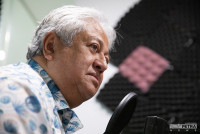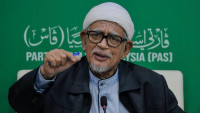MALAYSIA is among the many countries that have enacted national laws and policies mandating premarital HIV testing.
Johor, in southern Peninsular Malaysia, was the first state to introduce premarital HIV screening for Muslim couples in 2001. By early 2009, Muslim couples across the country were required to submit to premarital HIV testing.
Non-Muslim couples are not compelled to go through the mandatory testing, but in 2018, the then-Pakatan Harapan government suggested expanding compulsory premarital HIV testing to non-Muslim couples.
The idea was quickly quashed, and the suggestion received strong objections from human rights groups, calling it an “ineffective long-term solution” to combat rising HIV cases.
In 2010, the Open Society Foundations, in a report on mandatory premarital HIV testing, stated that such testing not only undermines the fundamental principles of HIV testing, but also represents an infringement of human rights, notably the “right to marry” and start a family.
Infringement of rights, privacy
The premarital HIV screening aims to detect HIV early and assist patients to undergo treatment promptly. It also seeks to raise awareness about HIV prevention within the general population, reducing the risk of sexually transmitted diseases.
This policy is seen as a violation of rights, including privacy, non-discrimination, equal protection, and the right to marry and start a family, as outlined in international human rights agreements such as the International Covenant on Civil and Political Rights (ICCPR, which Malaysia has not signed) and Convention on the Elimination of All Forms of Discrimination against Women (Cedaw, which it has signed).
Critics argue that mandatory testing contradicts the right to privacy, requiring informed consent and confidentiality. Unaids guidelines caution against coercive measures in HIV prevention, fearing reduced participation and increased alienation.
Critics also claim that the policy may lead to denying couples’ fundamental rights if one partner tests positive, violating their right to marry and start a family which is protected under Article 23 of the ICCPR.
Additionally, the International Covenant on Economic, Social and Cultural Rights emphasises protecting and assisting families, with marriage requiring free consent, echoed in Cedaw Article 16. Critics argue that the right to enter into marriage freely implies not preventing individuals from exercising this right.
Viewpoint from Islamic tenets
The mandatory premarital HIV screening aligns with Islamic principles, specifically the shariah principle of prioritising safeguarding essential values like religion, life, mind, property and descendants.
Emphasis is placed on the well-being of future generations, supported by the principles of maslahah (public interest) and sad al-dhara’I (blocking the way of evil). In Islam, emphasising public interests over individual ones justifies the screening to prevent harm to spouses and future generations.
Islam acknowledges the importance of marriage but underscores that if a marriage poses more harm than good, it should be avoided. Islamic rulings prioritise preventing harm, even in marriage, over securing benefit. The religion supports the mandatory premarital HIV test for early detection, immediate management and public awareness, emphasising prevention of sexually transmitted diseases to offspring.
Islam sees the mandatory premarital HIV test as invaluable for couples, enabling informed decisions about their future life. Partners share mutual rights and responsibilities for sexual health.
The test is crucial amid the unimproved preventive measures against HIV/AIDS, with rising infection rates, particularly among women, posing risks to children even before birth.
Islamic institutions and authorities play vital roles in preventing HIV spread, reinforcing the belief in collective responsibility.
It is the Muslim’s belief that the state government, religious leaders and religious institutions have important roles to play in preventing the spread of HIV. With those justifications, the state’s Islamic Religious Department and other Muslim countries enforce mandatory premarital HIV screening as part of this effort.
Important measures needed
However, it is crucial for the guardians or parents of the couple to be adequately informed, as any breach of confidentiality may lead to discrimination against an individual testing positive for HIV.
Additionally, it is advisable to directly submit the test results to the Registrar of Marriage, especially in cases where the outcome is positive, as a way to prevent the falsification of results.
Certain measures can be taken to enhance the effectiveness of the screening programme, such as establishing standard procedures for maintaining the privacy and confidentiality of HIV-related information, ensuring informed consent and upholding ethical standards.
As mandatory screening is done in a low-prevalence population, research would help demonstrate its cost-effectiveness, in keeping with the maslahah ‘ammah (public interest) principle.
Since healthcare funds are limited, alternative programmes that are more effective and economical could be proposed, such as screening targeted high-risk populations, as well as providing more effective public health education. – The Vibes, December 3, 2023
Assoc Prof Rafeah Saidon is a lecturer at the Academy of Contemporary Islamic Studies (ACIS), University Teknologi Mara, Malaysia. Her areas of interest and specialisation are Islamic and civil law, family laws, halal law and regulations, and Islamic studies.
Published under Creative Commons and in partnership with 360info.org










_and_lord_mayor_rajendran_posing_in_a_mock_up_lrt-Ian_pic.jpeg)





.jpeg)




